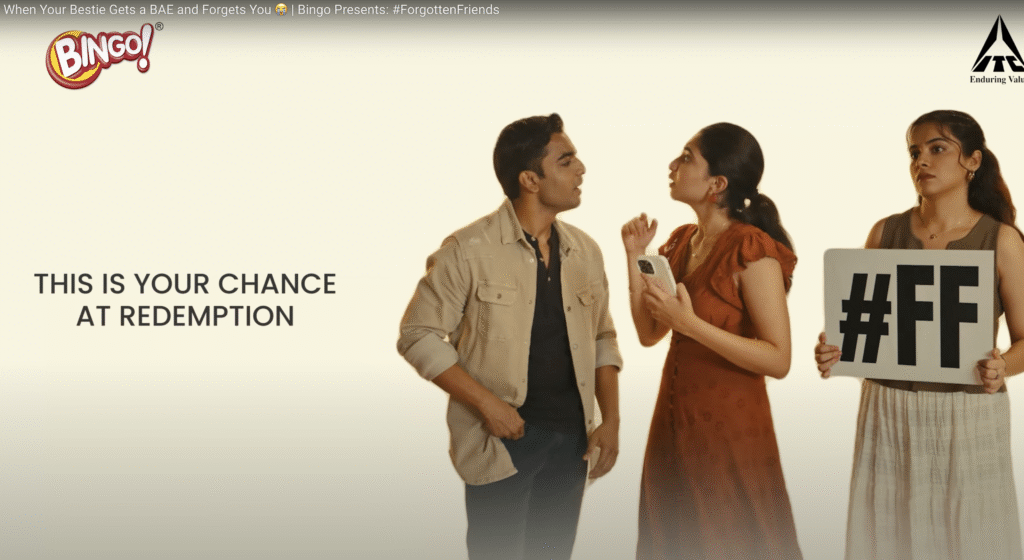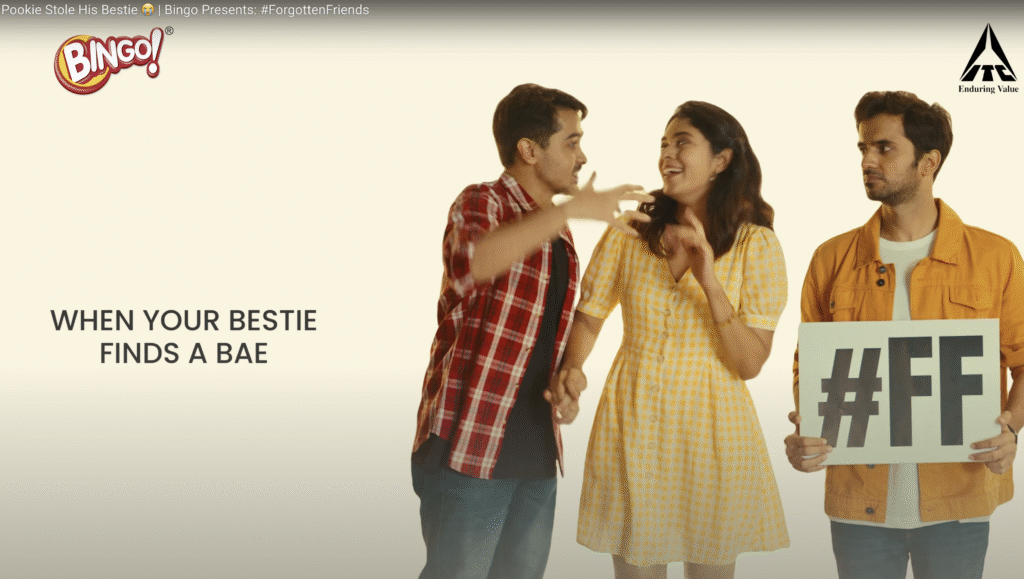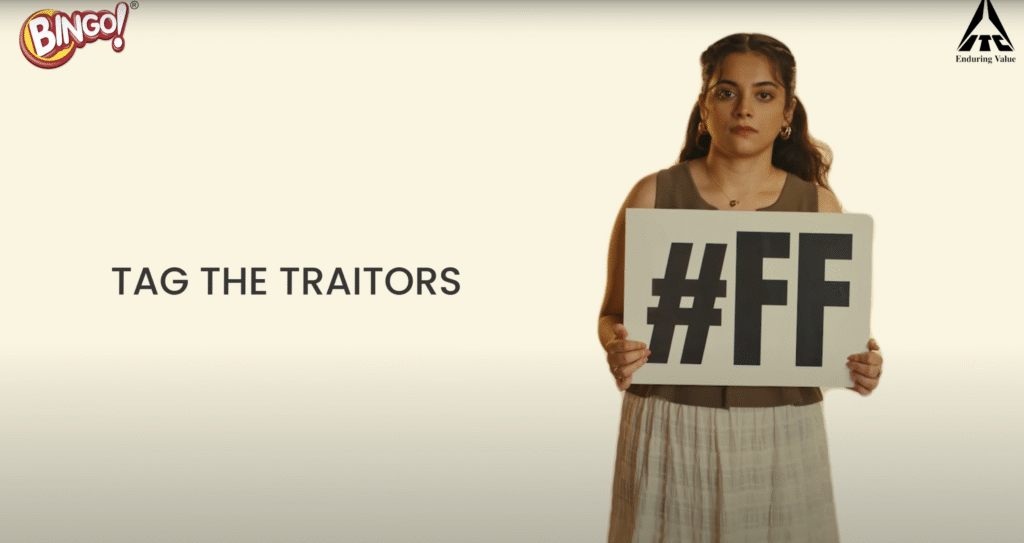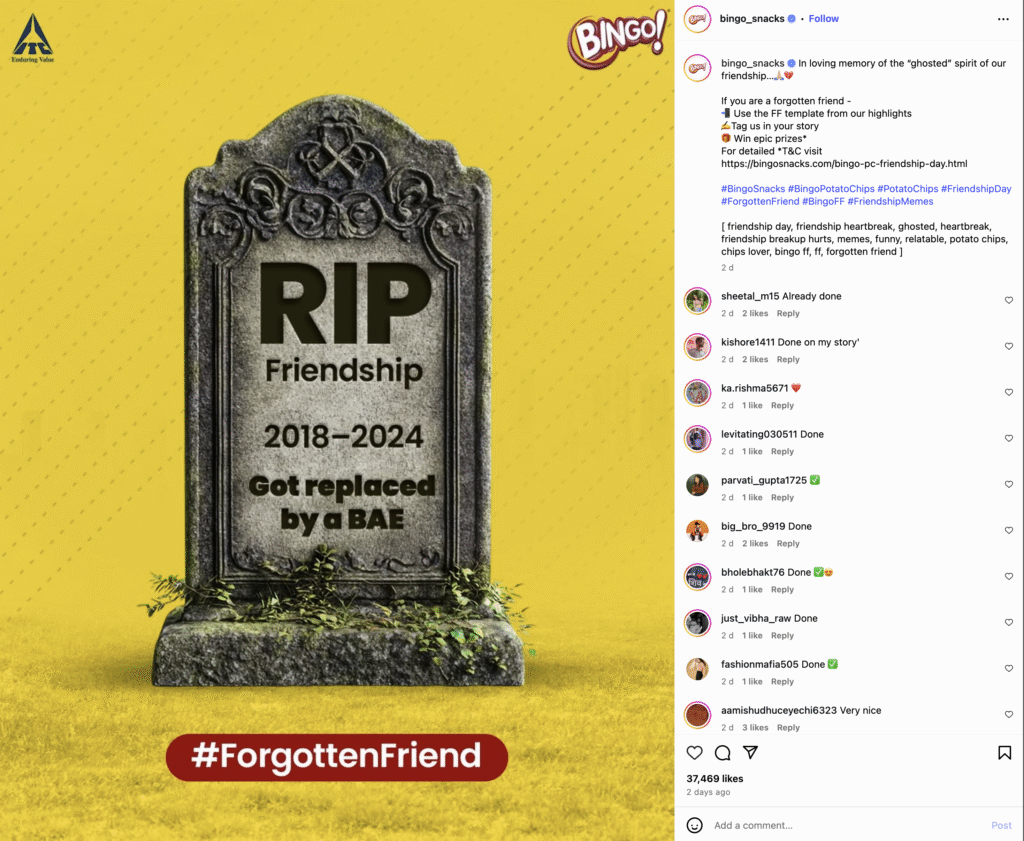Introduction

Universal Phenomenon of Best Friends in Romantic Crises
If you’ve spent any time immersed in modern culture, you’ve seen the phenomenon: when romantic relationships falter, our first call isn’t to family or counsellors—it’s to that one best mate. From WhatsApp rants at 2am to analysing every text, best friends serve as our therapists, jurors, and confidantes. This is universal: in India, late-night drink with your closest friend is a rite of passage. In the West, shows like Sex and the City, Friends, and Insecure have celebrated the “best friend-in-crisis-mode” script.
Bingo!’s Emotional Marketing Insight
Tapping seamlessly into this emotional tapestry, Bingo!, the ITC-owned snack brand, created the “Forgotten Friends” campaign—not just relatable, but a reflection on what happens when you’re sidelined by a mate who’s found new love. Its genius? Giving social status and visibility to the “left-behind” friend.
The Campaign That Knew Us Before We Did

The pain is familiar: your best friend dives into a relationship and, suddenly, your in-jokes, gym sessions, and meme exchanges disappear in favour of a new “pooky” or “bae”. Rather than minimising this, Bingo! offers a playful and empathetic public service announcement.
“Once we were bros, then came baby. And now I’m just a forgotten friend.”
Both male-centred and gender-neutral video formats run across social platforms, using a mock-urgent PSA tone. Bingo! turns what could be dismissed as mere millennial blues into a moment for real conversation and digital empathy.
Participation as the New Power Move

Unlike traditional “fun and crunchy” snack adverts, Bingo! harnesses the demand for recognition and validation. Viewers can tag their “traitor” mates and use interactive Instagram templates—fuelled by prizes for bold participation.
“Suddenly, being a ‘forgotten friend’ isn’t merely a personal disappointment; it becomes a badge, a meme, a catalyst for digital confessionals.”
It’s a campaign that works on both sides of the friendship fence: the snubbed and those (lovingly) called out. “I am the bestie who got a BAE—whom do I tag? I am the traitor,” one user comments—proving that Bingo! mastered gentle self-deprecation alongside the callout.
A Cross-Cultural Handshake

Bingo!’s approach sits at a perfect crossroads:
- In India, where “yaari” (friendship) is sacred and “dost” are chosen family, the message lands intuitively.
- In the UK, US, and Australia, references to “bae”, “best mate”, and those “I told you so!” moments appear everywhere, in both memes and mainstream culture.
“Bingo! didn’t create this anxiety of being sidelined; it simply gave us global language, a hashtag, and just the right shade of irony.”
Whether you’re brunching with Carrie and Samantha or unwinding after a Bollywood heart-to-heart, these campaign insights feel drawn from lived conversations, not committee brainstorming.
The Emotional Logic of Viral Friendship
What makes “Forgotten Friends” stand out is its participatory, psychological design. By embracing “social proof cascading”—the idea that shared behaviour normalises itself—every story and tag fuels a sense of communal, meme-powered therapy.
“Bingo recognised that the most powerful brands in our digital era aren’t those that speak the loudest, but those that know when to listen—and let their audience finish the sentence.”
Still, playful tagging can risk accidental shaming. Bingo!’s balance of humour and empathy is its saving grace, but it must tread lightly to keep the tone affectionate, not accusatory.
Why This Works—And Why Others Will Follow
Bingo! isn’t selling snacks—it’s branding itself as the emotional accomplice in our modern friendship rituals. “We see you” isn’t a throwaway line; it’s a call to a generation fluent in memes and FOMO.
“In today’s marketing, emotional resonance trumps product superiority. Ethics, authenticity, and participation are the new disruptors.”
Other brands may try to copy, but with Bingo! having made “friendship FOMO” a digital ritual, imitation will ring hollow. The true innovation lies in its blend of vulnerability, real-talk, and savvy engineering of community.
Final Thoughts: More Than a Campaign

“Forgotten Friends” transcends mere advertising—it’s an anthem for the overlooked, and a playful nudge to even the most notorious “traitors”.
“When culture moves, brands can either chase trends or become part of the conversation. For now, with ‘Forgotten Friends’, Bingo! is firmly the mate we all wish we had—a little bit salty, always there, and, best of all, impossible to forget.”
